TEST...
Kurdistan: Agricultural Renaissance
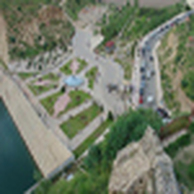
wWw.K-EconomY.Tk
The Kurdistan region of Iraq is a beautiful mountainous area that is likely to be where the Garden of Eden was thought to exist. ‘The Kurdistan region is one of the most fertile regions in the Middle East’, said Mr Hardie-Forsyth, Director of Capacity Building.
Kurdistan’s 3.5 million hectares of agricultural land have not been exposed to high levels of pesticides and chemicals, which make the region ideal for cultivating organic or low-residue produce, increasingly popular with consumers all around the world.
A huge variety of fruit and vegetable crops flourish in the region, such as tomatoes, melons, apples, apricots and, of course its famed pomegranates, grown naturally since ancient times.
In all, 81 varieties of grapes can be found in the region, which also boasts an unusually long grape season, from June to November. Medicinal herbs can be found in the mountain regions along with wild flowers, whose nectar to produce high quality honey. The unique climate of the region allows for two grain harvests in each year.
Questions of safety are naturally at the forefront of most people’s minds when they think of Iraq, but speakers for the Regional Government assured visitors that the area is indeed safe, with its own elected government. Not one coalition soldier has been kidnapped or killed in the region since 2003. The area is known as the gateway to Iraq, which has a population of 27.5 million. Kurdistan is served by two airports which allow 18 airlines to run regular flights to Europe and the Middle East, a facility that is very useful for foreign investors. Transport links are being improved in Kurdistan, with another airport opening next year.
When asked about the future of the agricultural sector, the speakers pointed out the incentives available for young farmers, including governmental part-payment of the costs involved in transporting produce. Such schemes will allow the next generation of farmers to become established before being expected to deal with the full cost of production. Such investment in the young has even set up an organisation that caters for its 300 young members, headed by Mrs Diman Saida, Horticulturalist and President of the Society of Devoted Agriculturalists.
The range of financial incentives for foreign investors is impressive. In the drive to replace oil production with agriculture in terms of relative contribution to GDP, the authorities have used oil money to make significant funds available for agricultural regeneration.
Mr Hamid Abdulrahman, General Director, Minister of Agriculture, impressed upon visitors that Kurdistan’s investment law is the most encouraging in the Middle East. Investors can enjoy tax holidays and easy repatriation of profits, and can be reassured by the fact that all business dealings go through the Kurdistan regional authorities, rather than Baghdad.
Existing foreign investors are already paving the way for future development, including those involved in construction, property development, warehousing and logistics. Investors and experts in chain marketing such as packing, juicing and canning, among others, will be attracted by the offer of freehold land for those involved in agri-business.
Iraq wants to triple oil production by 2014
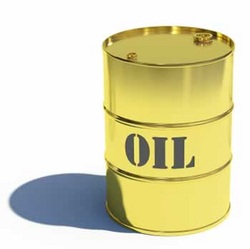
wWw.K-EconomY.Tk
Iraq will boost oil production from the current 2.7 million barrels a day to 6.5 million barrels a day by 2014, Deputy Prime Minister Hussein al-Shahristani said on Saturday, despite doubts by the International Monetary Fund (IMF) that the county’s petroleum infrastructure will have the capacity to meet targets for such increases in oil production.
Mr. Shahristani said oil production would rise from between 2.6 million bpd and 2.7 million bpd currently to 3 million bpd by the end of this year, 3.3 million bpd in 2012, and 6.5 million bpd in 2014.
He added that there were no foreseeable obstacles to Iraq massively ramping up that figure to rival the 8.6 million bpd of Saudi Arabia.
Iraq’s current proven crude oil reserves are 143 billion barrels, but that figure does not include undisclosed reserves in the Kurdish provinces. Iraq has the world’s fourth biggest oil reserves, after Saudi Arabia, Canada and Venezuela.
“The government believes also that the contracted oil companies are serious in carrying out their contractual obligations to access the production rate of 12.5 million bpd in 2017,” Mr. Shahristani, a former oil minister who was promoted to deputy prime minister for energy in December, told a news conference in Baghdad's heavily fortified Green Zone.
His projections are at odds with those published in March by the International Monetary Fund, which has expressed doubt over Iraq’s ability to meet its long-term targets for oil production.
Based on more conservative assumptions for the time it will take to expand Iraq’s export capacity, oil production could still increase to over 5 million bpd by 2017.
The IMF cited the need for huge investments in port facilities, pipelines, desalination plants, for water to be injected into oil fields, and storage facilities, according to Agence-France Presse (AFP).
“We are comfortable that new (oil) export outlets will be ready to received extra crude according to the plans to boost oil production with the contracted oil companies,” he said according to Reuters.
Current oil exports are 2.1 million bpd, the majority of which come from the southern oil hub of Basra.
Iraq, a member of the 12-nation Organization of Petroleum Exporting Countries (OPEC) needs to rapidly boost export facilities if it is to benefit from an expected large increase in production capacity. It plans to build new oil export pipelines that would carry crude from the southern oilfields to neighboring Syria and Turkey, and at least four new floating ports in the south.
“I am glad to inform you that development plans for the oilfields are going ahead normally, and faster than contracted,” Mr. Shahristani told a gathering of senior Iraqi and United Nations officials in Baghdad.
Foreign oil companies are expected to invest more than $150 billion in the fields they are developing to reach their targets, he said.
Associated gas production from oil deals Iraq awarded in two auctions in 2009 is expected to reach about 8 billion cubic feet per day.
Mr. Shahristani said oil production would rise from between 2.6 million bpd and 2.7 million bpd currently to 3 million bpd by the end of this year, 3.3 million bpd in 2012, and 6.5 million bpd in 2014.
He added that there were no foreseeable obstacles to Iraq massively ramping up that figure to rival the 8.6 million bpd of Saudi Arabia.
Iraq’s current proven crude oil reserves are 143 billion barrels, but that figure does not include undisclosed reserves in the Kurdish provinces. Iraq has the world’s fourth biggest oil reserves, after Saudi Arabia, Canada and Venezuela.
“The government believes also that the contracted oil companies are serious in carrying out their contractual obligations to access the production rate of 12.5 million bpd in 2017,” Mr. Shahristani, a former oil minister who was promoted to deputy prime minister for energy in December, told a news conference in Baghdad's heavily fortified Green Zone.
His projections are at odds with those published in March by the International Monetary Fund, which has expressed doubt over Iraq’s ability to meet its long-term targets for oil production.
Based on more conservative assumptions for the time it will take to expand Iraq’s export capacity, oil production could still increase to over 5 million bpd by 2017.
The IMF cited the need for huge investments in port facilities, pipelines, desalination plants, for water to be injected into oil fields, and storage facilities, according to Agence-France Presse (AFP).
“We are comfortable that new (oil) export outlets will be ready to received extra crude according to the plans to boost oil production with the contracted oil companies,” he said according to Reuters.
Current oil exports are 2.1 million bpd, the majority of which come from the southern oil hub of Basra.
Iraq, a member of the 12-nation Organization of Petroleum Exporting Countries (OPEC) needs to rapidly boost export facilities if it is to benefit from an expected large increase in production capacity. It plans to build new oil export pipelines that would carry crude from the southern oilfields to neighboring Syria and Turkey, and at least four new floating ports in the south.
“I am glad to inform you that development plans for the oilfields are going ahead normally, and faster than contracted,” Mr. Shahristani told a gathering of senior Iraqi and United Nations officials in Baghdad.
Foreign oil companies are expected to invest more than $150 billion in the fields they are developing to reach their targets, he said.
Associated gas production from oil deals Iraq awarded in two auctions in 2009 is expected to reach about 8 billion cubic feet per day.
Iraqis find jobs and safety in Kurdistan
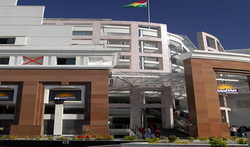
wWw.K-EconomY.Tk
Like many Iraqis, Mr al Shekhly fled Baghdad in 2005 as conflict spread through the capital. Friends had been the victims of kidnappings and terrorist bombings, and daily curfews meant his freedom was limited.
He is one of thousands of Iraqis who have headed north for the boom town of Erbil in Iraqi Kurdistan in search of stability and job opportunities. "There's no life in Baghdad," the 31-year-old says. "Everyday there's a car bomb, suicide bombing. You're worried all the time."
In one brutal attack, three of his friends were kidnapped by terrorists, who demanded ransoms of US$50,000 (Dh183,650) for each of them. The families paid but his friends were murdered.
So Mr al Shekhly fled the violence six years ago and spent a year working for a telecoms company in Jordan and learnt English. Then he headed to Erbil, taking on two jobs - working in a bank by day and moonlighting as a telecoms customer services agent at night.
When he heard that a $90 million Rotana luxury hotel was opening in the city and a friend told him the Abu Dhabi chain was hiring, he jumped at the chance to enter the hospitality industry.
"I quit the job at the bank for the hotel," says Mr al Shekhly, who got a job as a reservations agent for the hotel, which opened in December.
"It's the first chain in Iraq with this kind of high quality of service. We haven't had something like this in Iraq before," says Mr al Shekhly.
Rotana has taken on 350 employees in Erbil, half of whom are Iraqi, with the rest from countries in Africa, India, Turkey and elsewhere.
Erbil, as the capital of Iraq Kurdistan, which has its own government, has become a magnet for Iraqis from the south looking to escape violence as well as for international companies wanting to enter Iraq.
That means Erbil is also where the jobs are. Locals say politicians describe Erbil as the "new Dubai".
It is not there yet. But development is taking place at a rapid pace, with new buildings springing up.
Modern malls with stores of international brands including Levi's, Timberland and Ecco, and indoor skating rinks, have opened.
"This is something new for the people," says Toffi Kubba, the sales manager at the clothes store Mexx in the Family Mall, which opened a few months ago in Erbil, complete with an outdoor amusement park. A cinema is also expected to open there soon.
A $450m international airport was formally inaugurated by the president of the Kurdistan regional government just over a month ago in Erbil. Since the airport opened in September, average monthly passenger traffic has increased by 47 per cent, while cargo volume is up 35 per cent, according to the airport, which says this makes it the "fastest-growing airport in the Middle East".
The UAE is also expanding its connections with Erbil, with flydubai and Etihad Airways launching service to the city last year.
In March, the UAE Government approved a proposal to set up a consulate in Erbil.
The UAE's Majid Al Futtaim plans to open a Carrefour store in Erbil.
The Abu Dhabi-based Middle East division of Millennium & Copthorne has also taken over the management of the Erbil International Hotel and is planning a $12m refurbishment.
International hotel operators, including Marriott and Moevenpick, are looking at opportunities to launch hotels in Erbil, which would largely accommodate business travellers working on oil and gas and infrastructure projects in the region.
It is difficult to find locals who understand the luxury hospitality industry and are prepared to accept the rules and regulations imposed by a company, while few are prepared to work on career development, says Thomas Touma, the general manager of the Erbil Rotana. "The tourism and hotel industry in this country is not developed, so you can't expect people to have experience in it."
But some are willing to learn. "I didn't have any experience in hotels before," says Mohamed Hassan, 36, a concierge at the Erbil Rotana, who was born in the city. "I'm learning everything from Rotana."
He is one of thousands of Iraqis who have headed north for the boom town of Erbil in Iraqi Kurdistan in search of stability and job opportunities. "There's no life in Baghdad," the 31-year-old says. "Everyday there's a car bomb, suicide bombing. You're worried all the time."
In one brutal attack, three of his friends were kidnapped by terrorists, who demanded ransoms of US$50,000 (Dh183,650) for each of them. The families paid but his friends were murdered.
So Mr al Shekhly fled the violence six years ago and spent a year working for a telecoms company in Jordan and learnt English. Then he headed to Erbil, taking on two jobs - working in a bank by day and moonlighting as a telecoms customer services agent at night.
When he heard that a $90 million Rotana luxury hotel was opening in the city and a friend told him the Abu Dhabi chain was hiring, he jumped at the chance to enter the hospitality industry.
"I quit the job at the bank for the hotel," says Mr al Shekhly, who got a job as a reservations agent for the hotel, which opened in December.
"It's the first chain in Iraq with this kind of high quality of service. We haven't had something like this in Iraq before," says Mr al Shekhly.
Rotana has taken on 350 employees in Erbil, half of whom are Iraqi, with the rest from countries in Africa, India, Turkey and elsewhere.
Erbil, as the capital of Iraq Kurdistan, which has its own government, has become a magnet for Iraqis from the south looking to escape violence as well as for international companies wanting to enter Iraq.
That means Erbil is also where the jobs are. Locals say politicians describe Erbil as the "new Dubai".
It is not there yet. But development is taking place at a rapid pace, with new buildings springing up.
Modern malls with stores of international brands including Levi's, Timberland and Ecco, and indoor skating rinks, have opened.
"This is something new for the people," says Toffi Kubba, the sales manager at the clothes store Mexx in the Family Mall, which opened a few months ago in Erbil, complete with an outdoor amusement park. A cinema is also expected to open there soon.
A $450m international airport was formally inaugurated by the president of the Kurdistan regional government just over a month ago in Erbil. Since the airport opened in September, average monthly passenger traffic has increased by 47 per cent, while cargo volume is up 35 per cent, according to the airport, which says this makes it the "fastest-growing airport in the Middle East".
The UAE is also expanding its connections with Erbil, with flydubai and Etihad Airways launching service to the city last year.
In March, the UAE Government approved a proposal to set up a consulate in Erbil.
The UAE's Majid Al Futtaim plans to open a Carrefour store in Erbil.
The Abu Dhabi-based Middle East division of Millennium & Copthorne has also taken over the management of the Erbil International Hotel and is planning a $12m refurbishment.
International hotel operators, including Marriott and Moevenpick, are looking at opportunities to launch hotels in Erbil, which would largely accommodate business travellers working on oil and gas and infrastructure projects in the region.
It is difficult to find locals who understand the luxury hospitality industry and are prepared to accept the rules and regulations imposed by a company, while few are prepared to work on career development, says Thomas Touma, the general manager of the Erbil Rotana. "The tourism and hotel industry in this country is not developed, so you can't expect people to have experience in it."
But some are willing to learn. "I didn't have any experience in hotels before," says Mohamed Hassan, 36, a concierge at the Erbil Rotana, who was born in the city. "I'm learning everything from Rotana."
Kurdistan Parliament discusses 2011 budget bill
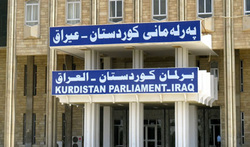
wWw.K-EconomY.Tk
The Parliament of north Iraq’s Kurdistan Region has held its normal session on Monday to discuss the draft-law on the Region’s budget, with the presence of the Kurdish opposition forces in the Region, the Parliament’s media advisor said.
“Kurdistan Region’s Parliament has began its session, led by its Speaker, Kamal Kirkuki, to discuss the budget of the Kurdistan Region for 2011, with the attendance of all political forces,” Tareq Jawhar told Aswat al-Iraq news agency.
Prior to today’s sitting, the opposition had boycotted parliamentary sessions for several weeks over disputes with the major ruling parties over the agenda of parliament.
The ratification of Kurdistan’s 2011 budget, estimated at around $11.6 billion, already delayed by disputes between the political blocs concerning parliamentary voting mechanisms, was further stalled by the opposition’s boycott.
“Kurdistan Region’s Parliament has began its session, led by its Speaker, Kamal Kirkuki, to discuss the budget of the Kurdistan Region for 2011, with the attendance of all political forces,” Tareq Jawhar told Aswat al-Iraq news agency.
Prior to today’s sitting, the opposition had boycotted parliamentary sessions for several weeks over disputes with the major ruling parties over the agenda of parliament.
The ratification of Kurdistan’s 2011 budget, estimated at around $11.6 billion, already delayed by disputes between the political blocs concerning parliamentary voting mechanisms, was further stalled by the opposition’s boycott.
CROSCO Wins Drilling Contract in Kurdistan
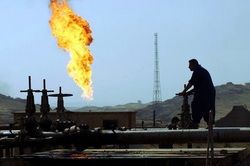
wWw.K-EconomY.Tk
CROSCO Integrated Drilling & Well Services Co., Ltd. is pleased to announce that wholly-owned subsidiary Rotary Drilling Company commenced with the provision of drilling services for Kalegran Limited, a wholly-owned subsidiary of MOL Hungarian Oil and Gas Company.
Drilling services are being provided with Rotary 2000 HP drilling rig Rotary 67 (pictured). The Bekhme 1 well, the first of a two firm well contract, is being drilled in the Akre-Bijeel [Akri-Bijeel] Block, Kurdistan Region of Iraq.
Igor Vrban, President of CROSCO explained:
“CROSCO is very pleased to be established in the Kurdish region of Iraq and to be providing drilling services to Kalegran. CROSCO’s subsidiary Rotary has established a branch office in Erbil and is actively pursuing drilling and oilfield service projects in the country and soon expects to mobilize additional equipment. The Kurdish region of Iraq and the entire country is a prime strategic growth pillar for CROSCO.”
Source: Iraq-business news
Drilling services are being provided with Rotary 2000 HP drilling rig Rotary 67 (pictured). The Bekhme 1 well, the first of a two firm well contract, is being drilled in the Akre-Bijeel [Akri-Bijeel] Block, Kurdistan Region of Iraq.
Igor Vrban, President of CROSCO explained:
“CROSCO is very pleased to be established in the Kurdish region of Iraq and to be providing drilling services to Kalegran. CROSCO’s subsidiary Rotary has established a branch office in Erbil and is actively pursuing drilling and oilfield service projects in the country and soon expects to mobilize additional equipment. The Kurdish region of Iraq and the entire country is a prime strategic growth pillar for CROSCO.”
Source: Iraq-business news
Why invest in Kurdistan?
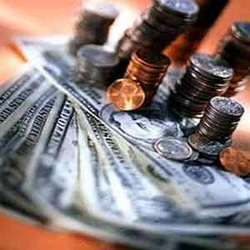
wWw.K-Economy.Tk
market offering excellent opportunitiesWith a young and increasingly prosperous population of nearly 4 million, the Kurdistan Region covers about 40,000 square kilometres , around the same size as the Netherlands or Switzerland.
A stable security situation - not a single coalition soldier has lost their life nor a single foreigner been kidnapped in the area administered by the Kurdistan Regional Government.
The Region has two new international airports in Erbil and Suleimaniah with over 80 direct flights per week from Vienna, Frankfurt, Stockholm, Amsterdam, Dubai, Amman, Istanbul...
A liberal investment law, ratified in July 2006, offers foreign investors incentives including customs relief, tax holidays and the freedom to repatriate profits.
A regulated banking & finance sector providing basic banking services.
Seven universities, two of which teach exclusively in English, and a returning diaspora provide a skilled workforce with English as a second language.
Attractive investment opportunities in agriculture, banking, communication, construction, education & training, energy, healthcare, professional services, oil & gas and tourism...
Trade shows in the Kurdistan Region
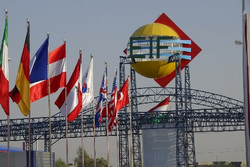
wWw.K-Economy.Tk
Every year the Kurdistan Region hosts trade shows and exhibitions, bringing together local and foreign companies and potential buyers, agents and investors. The Kurdistan Region welcomes events that introduce new products and services to the growing economy and our build ties between business communities here and abroad.
Since 2003 Kurdistan Region has been the gateway to doing business in the rest of Iraq. For companies that wish to enter the Iraqi market, Kurdistan provides a secure and stable environment to start their operations.
Since 2003 Kurdistan Region has been the gateway to doing business in the rest of Iraq. For companies that wish to enter the Iraqi market, Kurdistan provides a secure and stable environment to start their operations.
India's 12% remittances come from UAE
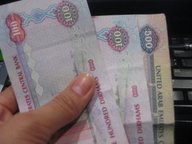
wWw.K-Economy.Tk
DUBAI: The UAE's expatriate employees remitted 11 per cent more dirhams in 2010 that they did in 2009, official data has revealed. According to the Central Bank of UAE's annual report, employees' transfers abroad (remittances) increased from USD 9.5 billion (35 billion dirhams) in 2009 to USD 10.5 billion (38.8 billion dirhams) in 2010, an increase of 10.8 per cent. According to a news report quoting UAE Central Bank figures,...
Shoppers count their pennies as retailers struggle

wWw.K-Economy.Tk
These are just two of the stories heard by Fran Walton, director at The Futures Company, the market research specialist which is part of the WPP group, as his team travelled the UK gathering data for its latest report into consumer confidence.
"We have interviewed people in Sheffield, Glasgow, Egham in Surrey and Staines to get a snapshot of the real picture. People revealed their levels of debt and their worries for the future. Sometimes there is a real sense of shame or resentment," says Walton.
But while the anecdotes are sad, they are not unusual. They show the often grim reality of consumers' daily lives and attitudes to shopping and spending around the country.
There is also a new savviness, whether from the 24-year-old unemployed former events worker in Glasgow who is so bored she does her sister's homework, or the retired widow thinking of sacking the gardener and cutting back her cleaner's hours, the message is the same – consumers want better deals.
The 1,014 people surveyed and the 12 in-depth interviews by The Futures Company make up the insightful data for its new report, "The Consumer Outlook 2011", published last Thursday, which offers a view of the consumer mindset for this year and makes predictions for next.
But is the picture really that bad? Last week's update from the British Retail Consortium appeared to offer some hope for retailers – revealing April's like-for-like retail sales had jumped 5.2 per cent thanks to warm weather and back-to-back long weekends, while Sainsbury's announced it grew its underlying pre-tax profits by 9 per cent to £665m.
But the retail outlook is patchy, with storms brewing for some: HMV is finalising plans to sell off its Canadian business in a bid to survive and is considering a company voluntary arrangement (CVA) among other routes in the UK, while electrical retailer Comet says that its like-for-like sales decline has reached 15 per cent since early January.
The higher commodity and fuel prices, the rise in the long-term jobless, the hike in taxes and a drop in government spending, along with the threat of an increased interest rate are all in the minds – and hitting the pockets – of the UK's shoppers.
On Friday, the Institute for Fiscal Studies revealed research that shows households may be facing their biggest drop in income for 30 years. Data shows that earnings undershot inflation by 3.8 per cent for the first 11 months of 2010-11.
But for the retailers that are suffering, the insight from the chats on the sofas in Sheffield, Glasgow, Egham and Staines can help them plan for the next 12 months.
Consumers are becoming increasingly cautious, with many people's real household income contracting for the first time since the 1980s.
The Futures Company has been keeping tabs on the consumer outlook nationally in a series of studies since July 2008. This latest has found that shoppers have begun to shift their spending patterns, becoming more concerned with finding the best value products and the best deals.
The report splits UK consumers into three categories, independent of social background or age, classifying people as either "plain sailing" – those who do not have worries about money or debt; "choppy waters" – those who have some problems but are managing overall; and "all hands on deck" – those who have serious debts and very little income.
Even those in the "plain sailing" category are cutting back, says Walton: "The plain sailing group are being smart and saving money because it is a sensible thing to do, even though they have money. They are not splashing out on luxury items as they don't want the stigma of spending when others are cutting back.
"Consumers are putting scrutiny on every purchase they make. Price inflation and wage deflation is affecting a broad spectrum of people across the population."
The research revealed further insights into shoppers' mentalities. Even those with debts are treating themselves on occasion. More than 60 per cent of those surveyed said they like to treat themselves even if they have to tighten their budget elsewhere to compensate.
So how can retailers do well in such a constrained environment? Walton and his team have a number of recommendations for them. He explains: "Retailers can acknowledge the tough times are not a blip, provide long-lasting value and give the shoppers a reason to hope. Promotions, vouchers, Groupon and guarantees on products all help people decide to spend."
The Sainsbury's launch of its menu on how to feed a family for a week for £50 is an attempt to ensure customers still spend with them, even when cutting back. While Marks & Spencer chief executive Marc Bolland noted the high uptake of its promotions in the past three months, including its Dine In for Two for £10 deal.
Kate Calvert, retail analyst at Seymour Pierce, has been following how retailers have coped since the recession. She says: "Housing related, discretionary and high ticket price categories have suffered the most, such as furniture, carpets and electricals. The value end of the market has done well. We have seen the growth of the pound-type store on the high street, and the discount food retailers have gained market share. Sports Direct has thrived at the value end of the sporting goods market. Value clothing retailers initially did well but then consumers switched to spending a little more on quality that would last, so companies such as M&S and Next have come into their own.
"Retailers who have done better are those which have embraced multi-channel, have a clear value proposition and a defined niche. Those who trade in the categories the food retailers are moving into, such as HMV, Game and Mothercare, have suffered."
Online shopping is also becoming more important. Calvert explains that there has been a push towards multi-channel so shoppers can choose when and how they buy and can compare prices. "Reserve and collect has been a great innovation." Most retailers have Facebook pages to raise their profile, and engaging with customers via mobile is likely to be the future for many retailers.
Karima Serageldin, a director at Ariadne Capital, a venture and advisory firm which invests in a number of digital businesses in the sector, explains: "There are a number of new apps and networked solutions being developed that will be able to track shoppers' preferences and offer deals or information based on previous purchases. For instance, Geocast delivers businesses a means to increase footfall while giving consumers an easy way to save money and 'shop local' via vouchers pushed to your phone at the point of consumption. For example, while you are outside Pizza Express you will receive a 2-for-1 lunch offer on your mobile phone."
Back on the sofas in Sheffield, Glasgow, Egham and Staines, the outlook remains pretty bleak. Nearly half the people surveyed said they feel worse about their financial situation over the coming year than last year. It is likely to get worse still for many before it gets better, so retailers must work harder for every last
